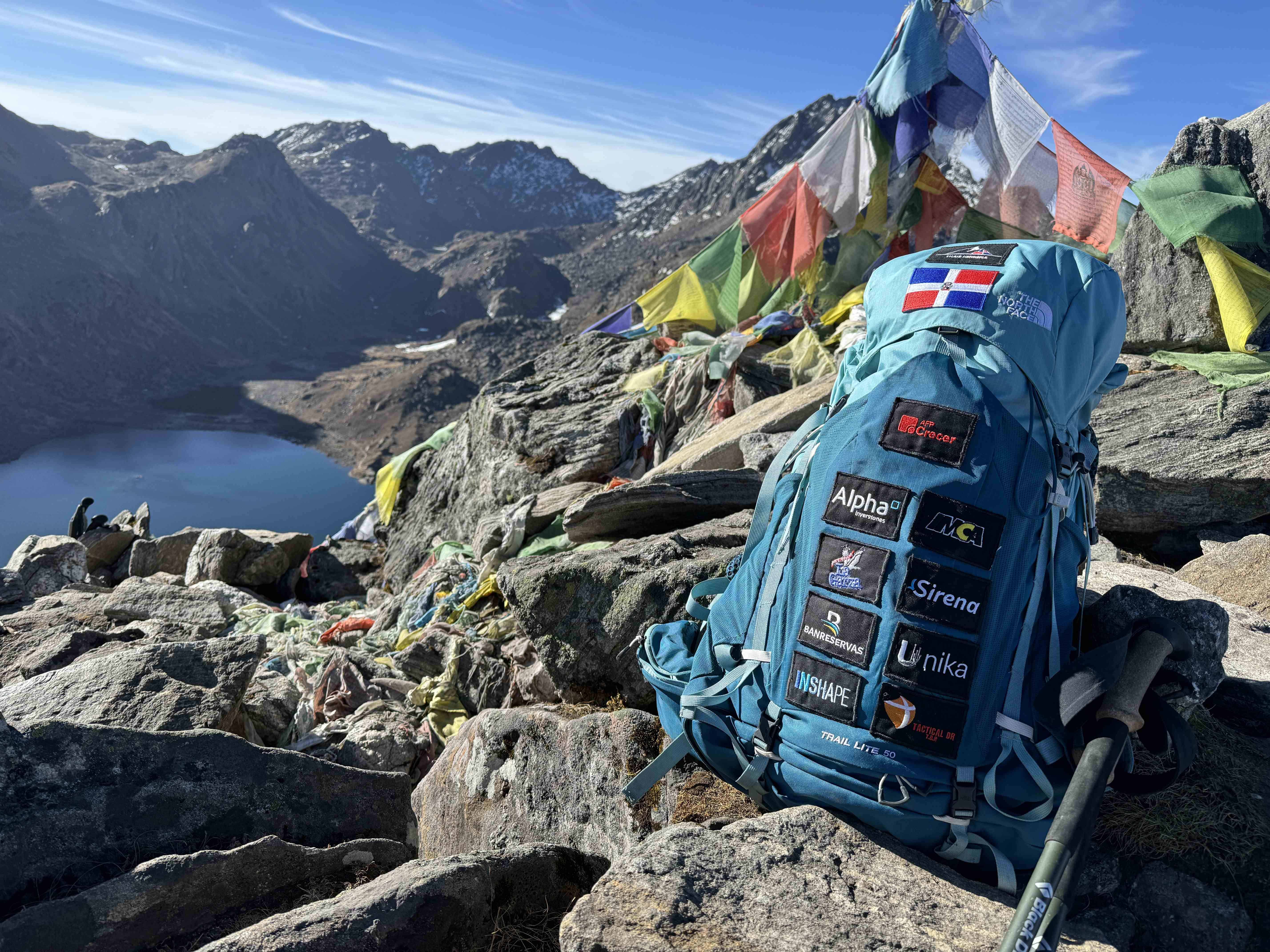
Before the trip, throughout the Flight, even upon arrival at Nepalyou always have that feeling that there is something that is missing. Like when you go on vacation with the family and you think: What am I leaving behind? My pajamas, my toothbrush?… When you go to the Everestthat feeling is not less, but it is sharpened. The amount of equipment that must be carried is enormous, expensive and indispensable. That night of April 8 in Kathmanduafter a dinner where I met my expedition companions, I had a feeling. Some of my luggage had to arrive the next day from Istanbul. It would be catastrophic if I was missing some important equipment.
To climb the Everest You have to wear the equipment of mountain that they require of you. This includes many things that must be stored in a few backpacks, since the weight must be minimal. Altitude boots that are three layers, electric socks for the summit day (and different socks for the rest of the days), hiking boots that are made of trekkingwhich are used for hiking; you take approach shoes, flip-flops to be able to bathe, flip-flops to get into those suspicious bathrooms in camps where you can get sick; a down suita climbing suit, down pants, waterproof pants, hiking pants, mountainlarge down coat, medium down coat, gloves of different types, helmet, ice ax, the pickaxe… In total, you carry almost 100 pounds. For this reason, the work of Sherpas It is so important.

Dabaringi and Lakpa did not speak Spanish
Not all of them Sherpas They don’t speak English, but Dabaringi and Lakpa did, at least a little. These two were the ones we interacted with the most, although they didn’t join us on the tour. Everestbut in the acclimatization stage.
The Sherpas They are the real heroes of the mountainThey help you, they carry you, they take you, they motivate you, and they always do it with a smile. They are also very grateful, so you connect with them very quickly. I gave one of them a Dominican chocolate and he responded with a huge smile of gratitude. Even if they don’t speak your language and don’t understand you, you feel that they are there to take care of you. In part, they know that this is what identifies them, that the world knows them like that, and they want to continue being like that. hospitable.
That kindness of the Sherpas It extended to everything else in that area Nepal. When one stopped at any hostel or tea houseThe older ladies served you gently and you said to them: “Namaste.” In that society, foreigners, who are usually mountaineers, are treated very well.
The Sherpascertainly, are one of the ethnic groups that inhabit the regions of NepalThe word “sherpa” does not mean guide. mountainHowever, over the years, with their great work accompanying and guiding mountaineers in the Himalayas, they earned that fame. The work they do is what helps them support their families. They start as baggage carriers, then move on to cooks and kitchen assistants. After that, if they are good at it, they can become chefs and kitchen assistants. mountainthey start to be guides. They carry 80 pounds with flip-flops with their little toes sticking out in front, going down those dangerous mountains. Sherpas are born in the mountaingrow in it and unfortunately some of them lose their lives in the Everest.
The eternal wait to go to camp base
We arrived at Nepal April 8th. Before that, they had already delayed our itinerary. In an initial plan, we were supposed to be on the camp base April 4th. That’s how it was planned. But this date was delayed, so we decided to Travel to Ecuador to acclimatize the body and catch height. So, we arrived on the 8th Nepal hoping that four days later, that is, on April 12, we would be in the camp base.
After that long day in which we arrived at Kathmanduin which our suitcases were lost, we got to know the city and its mysticism, and we had dinner with the rest of the expedition members, finally we rested in a comfortable bed at the Dusit Princess Hotel. We deserved it… For the more than 30 hours crammed into airplanesbecause of all the time changes, because our luggage was somewhere in Istanbul, and because it would be one of the last nights we would sleep comfortably on a real mattress. We went to sleep thinking that on April 12th our feet would walk on the camp baseHow innocent we were!
The next morning, we were told that we had to wait a little longer. There was no clear path to go to the camp on the 12th. It was bad news and we had a hard time believing it and facing it. Nobody likes to wait, and even less so in the mountain. Less, when you don’t know what date you’re leaving. At that time, a few days of uncertainty began that made one of us leave the group. We had a problem height.
_______
A story of Thais Herrera as told to journalist Miguel Caireta Serra.



